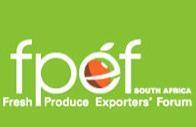
A new three-year Post-Harvest Innovation Programme will commence soon in the South African fruit industry, after the country's government decided to back the initiative for a second term.
The first Innovation Programme ended in 2010, with the fresh produce industry and government involved in a lengthy process of negotiation to renew the programme ever since.
The programme will be managed by the Fresh Produce Exporters' Forum (FPEF), which has revealed that the National Department of Science and Technology (DST) recently renewed the Post-Harvest Innovation Programme in the South African fruit industry. The DST will be investing R15m (€1.5m) over the next three years to back the programme.
FPEF has entered into a public-private partnership to launch the programme: 'We are delighted at the confidence that the DST has shown in us as an organisation to take this initiative to the next level,' said Stuart Symington, chief executive of the FPEF.
South Africa exports nearly 2.5m tonnes of fruit to 70 countries around the world, and the foreign exchange earned in 2010 was in the order of R10bn (€1bn). Rural employment is significant, with the industry employing over 400 000 people full-time in all nine provinces.
'To protect this asset base, and to remain competitive in our international markets today, we need cutting-edge interventions which will make us the preferred supplier in the eyes of our customers,' said Mr Symington. 'We believe that this programme will help us do this.'
He explained that, it is hoped, interesting applications for funding will be received for technologies that deal with, among others, market access issues; inherent fruit quality challenges; inner and outer packaging; human resource development; energy and water challenges in the supply chain; information systems; and transport logistics issues.
According to the newly appointed Innovation Programme co-ordinator, Junette Davids, an important new priority will be the successful integration of small-scale producer-exporters (formerly known as emerging farmers) into the export value chain.
Ms Davids said that new business models need to be formulated in which previously disadvantaged farmers can have equal access to lucrative markets.
Priority for the Innovation Programme will be given to funding those applications that leverage additional funding and offer very innovative solutions in the post-harvest arena of fruit exporting.
A call for project applications will be advertised before the end of March 2011, Ms Davids added.



